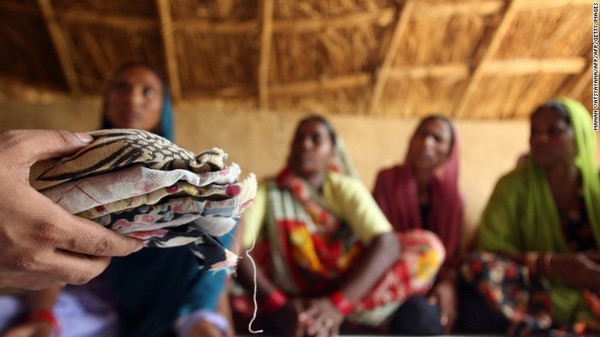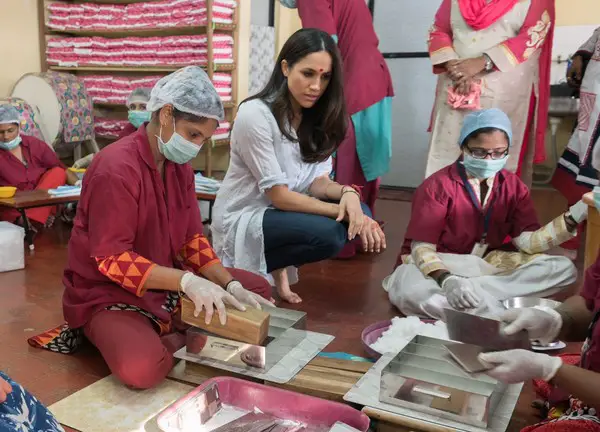News outlets have been abuzz with reports on all of the latest royal wedding festivities. From discussing clothing designers to analyzing balcony placements during “Trooping the Colour” celebrations, everything has been on display for everyone to see. With this new visibility, comes a greater social responsibility, and Meghan Markle, Duchess of Sussex is already ahead of the game. Being a long-time advocate for global menstrual health education, she has already proven that she can bring lesser known issues to light. She even has a piece published in Time Magazine titled Meghan Markle: How Periods Affect Potential.
In the article, she discusses how there is a huge stigma towards menstruation in India, Africa, Iran, and several other countries. This stigma, coupled with a lack of supplies and basic sanitation, is a major reason why young women fail to continue and complete their education. With girls already achieving less than their male counterparts, this trend is concerning.
Still not convinced? Take a look at the numbers. Markle wrote, “One hundred and thirteen million adolescent girls between the ages of 12-14 in India alone are at risk of dropping out of school because of the stigma surrounding menstrual health.”
Yet statistics are just statistics. It’s the stories behind them that make it human.
See Also: From Atlantic Coast to Coast, the Royal Wedding Makes It to Nyc
Some girls believe that when they menstruate, they are purging evil spirits out of themselves. Others are downright embarrassed because they don’t have the products or facilities they need to adequately take care of themselves.

Image Credit:CNN’s article titled New Sanitary Pad Tax Exposes India’s Archaic Period Taboos by Ira Trivedi
To date, only fifty percent of high schools in India have toilets, while menstrual products are quite costly.
Both of these factors make going to school a burden. If a girl visibly bleeds through her skirt, the ridicule she faces and the resulting shame makes dropping out an appealing scenario.
Just imagine if you were mocked and called dirty for something that’s completely natural and healthy; something that you and half of the world’s population experiences for decades. These girls are so impressionable and their situation is unacceptable.
The implications of the taboo against menstruation are broad. Doing the math, if a girl skips school an average of five days per month over a nine-month period, she will have missed forty-five days of school in total. This is if she even opts to stay in school. If she drops out, she has an increased risk of being subjected to dangerous home and work environments and even child marriage. Should education be taken away from these hardworking girls due to period shaming? I don’t think so.
Something needs to change.
Thanks to a small microfinance system, some communities are beginning to see better horizons. Meghan was able to shadow some women in the slum communities of Mumbai. Their organization, Myna Mahila Foundation, alluding to myna or “chatty bird” and mahila, meaning “women”, hire women from the slums to manufacture sanitary napkins and sell them to their own communities. Not only does the system create jobs and contribute much-needed goods to consumers, it also opens up a healthier dialogue about menstruation.

Image Credit:World Vision Canada via Time Magazine
This is a solid step in the right direction, but it does not solve the problem of ridicule and silence. Although this article mainly references India, these issues crop up time and time again, all across the globe. In response, Meghan stated, “We need to push the conversation, mobilize policy-making surrounding menstrual health initiatives, support organizations who foster girls’ education from the ground up, and within our own homes, we need to rise above our puritanical bashfulness when it comes to talking about menstruation.”
I applaud the Duchess for being so outspoken about menstrual education and I hope she is able to continue to support social causes such as these as she steps into her royal duties.
But she’s not the only one who can help. We all must continue to talk about this, period. The futures of these girls depend on it.
Featured Image Credit:Tim Marshall via Unsplash


